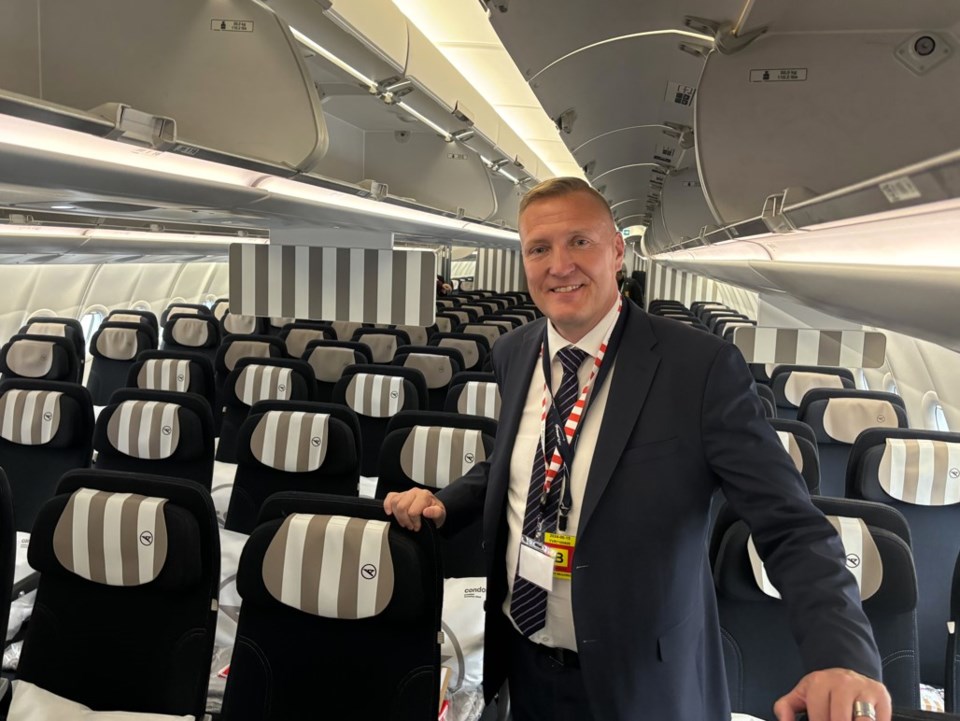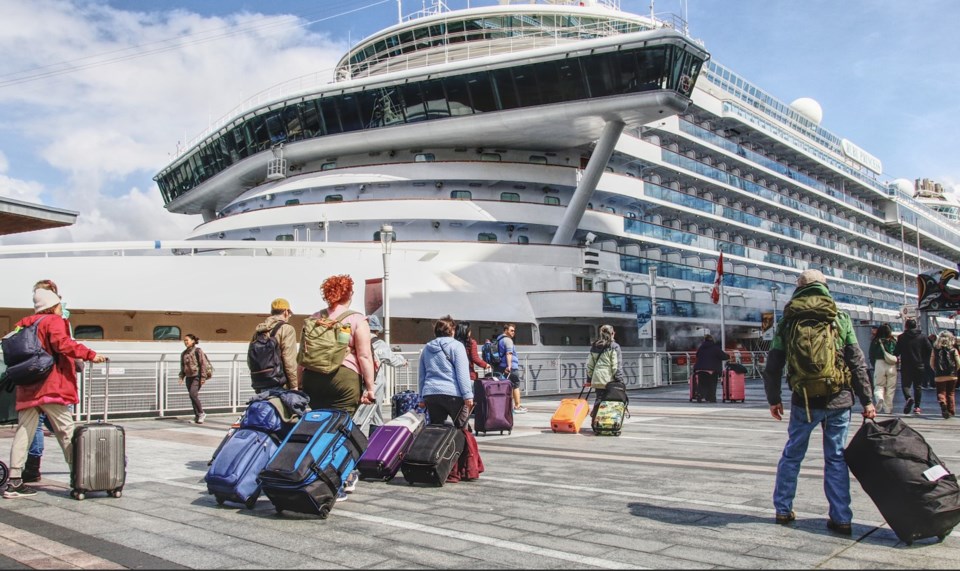Business owners in the tourism industry can be excited that spring has sprung. It's a time when B.C.'s tourism economy starts humming again, after a slow winter season.
This is true even when the Vancouver Canucks are not making a playoff run, such as the one they are on right now.
Spring also leads to summer, which is the sector's biggest season for sales and a time when operators can charge higher prices.
Some parts of the province, such as those with ski resorts, welcome ample tourists in snowy winter weather. Overall, however, tourism businesses struggle in the winter, and many across B.C. had a particularly harsh winter this year.
B.C. restaurants, pubs and bars, for example, in January saw a 2.8-per-cent decline in sales, on a seasonally adjusted basis, compared with the same month in 2023. The only other province with a year-over-year decline in sales that month for food services and drinks was Quebec, where sales fell 0.76-per-cent.
Indeed, the time when most visitors want to come to B.C. is when the weather warms and rainy days are few. The May-through-September period is when Vancouver's average high monthly temperature is at least 17 C degrees, and there are fewer than 10 days rainy days per month on average.
That's why destination marketers do not market B.C. as much for summer visitors as for winter ones, Destination British Columbia vice-president of global marketing Maya Lange told BIV.
She said her organization lets regional destination marketers, such as Destination Vancouver, take the lead for local marketing efforts.
Destination Vancouver CEO Royce Chwin has told BIV his focus is to increase visits at slower times of year, such as February and March. That's why his organization sponsors events such as Dine Out Vancouver and the Vancouver International Wine Festival, he said.
Travel to B.C. picks up in May
Last May, 2,089,986 passengers either boarded or disembarked planes at Vancouver International Airport – more passengers in a month since the previous August, and 9.4-per-cent more passengers than in April 2023, according to Vancouver Airport Authority data.
Monthly passenger counts then increased each month until August before tapering off in September and October. A similar pattern for air travellers tended to be seen pre-pandemic.
Hotel room rates follow a similar pattern.
Last May, the average Vancouver hotel room rented for $279.12, which was the highest since the previous September, when room rates were on average only $1 higher: $280.12, according to Costar, which provides global real-estate data, analytics and news.
That average hotel room rate last May was 23.4 per cent higher than the average $226.18 price in April 2023, underscoring how much demand for accommodation picks up in May.
Airlines help drive this demand.
Condor Airlines upped its flight frequency between Vancouver and Frankfurt to five times per week, from three times per week, on May 1.
The airline this year is not only upping its Vancouver route’s frequency, but it is also increasing capacity by flying bigger planes during a slightly longer April-through-October season, compared with last year, its director of sales for North America, Mikko Turtiainen, told BIV.

Condor Airlines' director of sales for North America, Mikko Turtiainen spoke with BIV while on board one of his airline's new Airbus A330neo planes | Glen Korstrom
WestJet on April 28 launched a new route between Vancouver and Detroit, Michigan, while United Airlines (Nasdaq:UAL) restarted its route between Vancouver and Washington, D.C. on May 2.
On June 5, American Airlines (Nasdaq:AAL) plans to launch a new route between Vancouver and Charlotte, North Carolina.
Cruise sector drives peak-season tourism
The province's cruise sector is one of its biggest drivers of tourism between May and October, and post-pandemic demand for cruises has soared.
Last year a record 1.25 million passengers docked in Vancouver on cruises, according to the Vancouver Fraser Port Authority (VFPA). In 2024, the VFPA expects that number to rise to 1.27 million passengers thanks to cruise lines operating larger ships.
It estimates that each cruise ship that visits Canada Place generates about $3 million for the local economy. Last year that terminal saw a record 332 ship calls, which is three more than the VFPA expects Vancouver to have this year.
Canada-wide, the sector supports about 7,000 jobs, $300 million in wages and it contributes $840 million to national GDP, according to the VFPA.
This year's cruise season launched March 11 but really did not get going until the end of April, when Vancouver finally saw two consecutive days with ship calls (April 26 and 27.)
The season is slated to continue until Oct. 29, although it starts to peter out at the start of October, as many days do not have ship calls.
Luxury train travel across the province has a similar season, running April through October, and draws international tourism.
Rocky Mountaineer CEO Tristan Armstrong told BIV in March that he anticipates 97,500 passengers this year, which would be a record.
That number, however, includes about 10,500 passengers on American routes.



